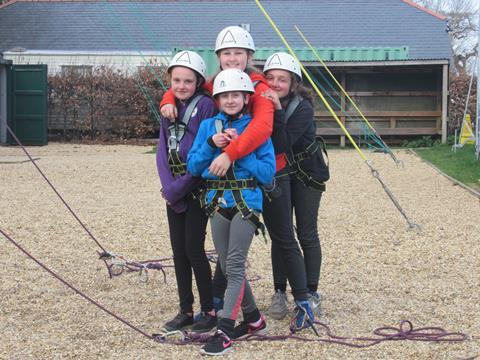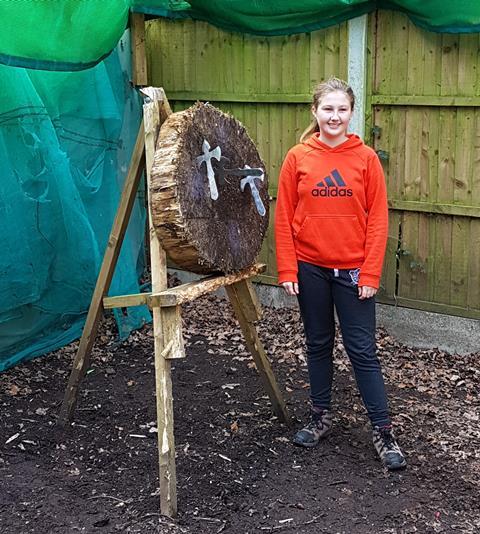Barry Cook, Year 5 teacher and PE and outdoor learning lead at Buckland Primary, talks to STO about the importance of teaching kids outside of the classroom.

What role do offsite visits play in the curriculum at Buckland Primary School
They play quite a big part. A couple of years ago only one year group went on a residential. Year 6 went to PGL for a week, but then we changed it. Now Years 3 4 and 5 all do something.
Why did you change things?
We felt the children needed to have the experience of going away from home earlier. Now our children spend one night on their own in Year 3 and we build it up from there.
Where do your residentials take place?
Year 3 stay onsite. We take Year 4 to a residential centre on the border of Surrey and Sussex, which is about 35 miles away. The company delivers lots of outdoor adventures on both land and water and the children do things like bush craft.
We use different venues for Year 5 including a reservoir where they go kayaking, and Paccar Scout Camp where the children do things like crate stacking, archery, tunnelling and follow a faith trail to learn about different religions. Year 6 have been going to PGL, but it’s getting a bit expensive so we’ve decided to try a new centre in Devon.
What considerations went into your selection of a new venue?
Advice from other schools helps. Another school had a really good experience at the centre in Devon, and that influenced our decision to go there.
What about other types of school trips?
Every year group goes on two school trips a year or we get people in to run workshops for them. Where we take them depends on the topic they are studying. We go to places like Hampton Court, Sutton Life Centre and London Zoo. We also have our own forest school and years 1, 3 and 5 do that for a term.

Why is learning outside the classroom important to Buckland Primary School?
It gets pupils confidence up. So many children in today’s society don’t have confidence or self-esteem. Residentials and school trips give children new opportunities to challenge themselves. They also give children the chance to do things on their own. They get the chance to make mistakes, and try again, and solve problems themselves, and that builds their confidence.
At Buckland Primary you have developed a scheme called the Junior Achievement Challenge. Tell us about that.
It started when we were looking for a rewards scheme like the Duke of Edinburgh, but that’s very much more for older children. We found a scheme, but it wasn’t quite what we wanted, so we developed our own.
We run an after-school club on a Monday and give children lots of skills sessions and activity tasters. The children then have to go away and develop some of those skills as hobbies.
We do activities at weekends too, to help them build skills, like sponsored walks, where the children also get to debate over the charity. We’re also going to be doing an outdoor litter pick with the local kayaking club soon.
How do you staff all the trips and outdoor education sessions you offer children?
We are very reliant on teachers giving up their time, but we get a lot of help from parents, too. We send a questionnaire out at the start of every year asking parents to tell us about any skills they might have that they could tell children about, and also ask them if they can commit an hour once a year to volunteering. We’re lucky, though, out parents really seem to want to get involved.
How do you manage permission for trips?
For some activities we get parents to sign a general permission form at the start of the year. If we’re doing anything bigger we send out extra permission slips. For the after-school club we have an invite-only Facebook page and parents give their permission for things through that.
What sort of impact does this emphasis on LOtC have on your pupils?
We have had a lot of success stories. There was one boy who had ADHD symptoms and struggled in the classroom. He was a completely different person on trips. We had a talent show on one trip and he would have been the last person we would have expected to get involved. But he sang a song and won. He was a different child.










